#spiritual colonialism
Explore tagged Tumblr posts
Text
"Starseeds are just here to raise the Earth's consciousness so it can ascend to 5D!" is literally just "missionaries are just here to bring people to Christ so they can go to Heaven!" in a new hat.
"All of these people's sacred texts and myths show that the aliens we believe in visited them in ancient history!" is literally just "all of these people's sacred texts and myths actually point to Jesus if you look close enough!" (ie, do eisegesis) in a new hat.
#starseeds#starseed#new age spirituality#spiritual colonialism#colonialism#cultural christianity#aliens#extraterrestrials#5d#fifth dimension#ascension
82 notes
·
View notes
Text
Bullying, Mean, and Honest Truths About Spirituality


Under the cut is an honest and crude description based off of my own bias and opinion of new people joining Spiritual practises, the occult, or seeking magic and mysticism.
So you want to start practising the Occult.
You are drawn to the idea of Mysticism, Magic, the Occult, and “Witchcraft”. Let me say that again, but louder.
You.
Are Drawn.
To the IDEA Of Mysticism, Magic, the Occult and “Witchcraft.
A lot of people like the idea of pets.
Pets are fun! You get a cat or a dog and they hang around and you imagine yourself going for long walks or hikes with a canine companion, or sitting at home and enjoying the company of a furry feline. Maybe it isn’t a dog or a cat or a common household pet. Maybe you want a bird! They are fun, right?
You see people on the internet through videos on whatever platform you’re wasting your hours on. You fantasize about what you would do or have. You spend hours entertaining this fantasy while looking at everyone else’s lives and situations.
You are drawn to the idea of something.
And then you ignore the important detail that these things require work, time, and dedication.
The Occult is just like people and pets.
There’s more people that i know that should not have pets than people that I know are responsible pet owners.
This, for me, is the same with the occult. Only, if you choose to neglect the Occult practise you claim to be drawn to, there isn’t really a penalty like a vet bill or a dead creature that you were supposed to be responsible for, for your negligence.
“Oh, I’ll just pick a “class” like an RPG and I’ll roll with it.”
Will you though? Will you dedicate the time and energy to do research on the subject matter you claim to be interested in? And not only will you give it the time and energy to just begin with the research, but will you also put in the dedication to put it into practice?
Be realistic with yourself. What are you actually going to do? Are you capable of maintaining routines and managing yourself and keeping up with the demands of the occult? Or are you just whimsically interested in it because it sounds “cool” and you had some friends in school that played with some tarot cards so now you think you’re a witch.
Let’s pretend you do actually have the self control and discipline to dedicate yourself to a spiritual path and practise. Let’s pretend you have that kind of integrity (but let’s be honest, you and I both know that’s a load of wash.)

Most likely, you’re coming from an Abrahamic Background, aren’t you? In the least, you’ve spent a lot of your life surrounded by vaguely misshapen ideas of “some sort of binary system where there’s good and bad spirits” or something or another and demons might be a thing? You don’t really know. But you took a class once that talked about Greek and Roman gods or maybe the Norse and Celtic gods, so you know there’s Gods out there! So that’s a START! Let’s go!!!!!!!!
You can just pick a god and run with it, right? Like, who cares? Just pick what makes you go “Yeah that’s neat and cool. I’ll take this out for a spin.” and pretend that you’re somehow deeply connected to this being. You read something or another about this deity or this pantheon at some point or another (or something like that). Just google search and read the Wikipedia page and waste a few more hours on it till you’re a Reddixpert on it! You have everything you need and a few days later you throw down a candle and incense and you’re blown away by feeling a strong connection to this god! HOLY COW! It’s working?! Let’s face it, you’ve not been connected to anything at all in your self obsessed life for a long time. So you think it’s “Special” when you get an answer. It’s not.
Sorry, sugar. You’re not special. You’re not a little special little sugar plum fairy that is adored by the gods. Because, believe it or not, you have to build relationships. But not just that, you’ve just pulled a “White Person” move. Most likely, you didn’t consult with or have any discussions with practitioners of the ethnicity and belief system you are interested in. Nor did you research the culture and how the religious and spiritual beliefs of those people manifest. I would suggest you learned some or a little bit or even all of the language of the people that the religion belonged to, but let’s be honest again with one another, you don’t have that in you for sure. You chose to take a God from a Pantheon and chose to take it entirely out of context. Congratulations! You pulled a White Colonialism Move so good that you took it to a spiritual level!
What? You thought you could just pick whoever from wherever and just rip them out of their culture, place, language, and people and water it down till it suited you? What is this, Wicca?
It might be! If this sounds like your idea of fun, check out Wicca. They’re full of it. You have gods from across all seas (Except for some reason the Pacific? Not sure if it’s a weird Asian racism problem or if they’re just focusing on everything the British Empire stole from) being Shipped together like smutty fanfiction. It’s insane. Anubis and the Morrigan are having babies every year, I guess, and their child, who’s always a Son, is the next Cernunnos who is also Pan but also Hades and also is Thor every third life (or something, I don’t know I’m not Wiccan).
What, you didn’t think that you actually had to respect a culture and the people that a religion belongs to? What are you, a pilfering bandit? There’s a right way and a wrong way to do these things. But what’s important is that you have to be honest.

Yeah that’s a big word. “Honesty”.
How honest are you with yourself? How true are you to what you think you can achieve and accomplish? Are you really going to read all of those books and write notes and document things? Are you really going to make a whole entire lifestyle change that surrounds and accommodates the culture, belief systems, and structures of a culture’s religion and beliefs? Are you? Are you really? If you make the change, are you going to commit to the change? Or, in a few weeks or months are you going to revert right back to the way you’ve always lived your life?
Again. This is the difference between enjoying the idea of something versus actually doing the work. And that is what the occult is. It is work.
Work. Work. Work. Work. Work. It is putting you on the grindstone and making you both rethink, reshape, and re-evaluate your entire being. It is going to make you uncomfortable. It is going to challenge you. It is meant to help you grow and be better. And growth doesn’t happen when you’re being spoon fed off of a lace spoon. Your idea of what things are is going to be challenged.
That’s another word that has a tendency to throw people out of the Occult. Challenge.
If you’re new to the Occult, you’re going to have to learn a critical skill that, in my opinion, very few possess.
Everyone wants to be “right”. It sucks when you’re wrong. How well do you handle it when someone corrects you. Let’s be honest. It’s awkward. It’s embarrassing. Everyone wants to be right. YOUR PRIDE IS SENSITIVE DAMNIT!
You’re a sensitive snowflake and you need to be swaddled in soft cashmere and reassured that you’re perfect because of course you are, sugar-pie.
But we have to touch some grass and live in reality. Yeah, I know the occult feels like you’re indulging a fantasy, but it’s not. Spiritual practises and spiritual beliefs are real things that have real people of many different cultures and languages and walks of life. And these practises are not just little badges and stickers you can throw on a water bottle and make yourself feel like a “Validated Witchy Bitch, Baby! ‘Cause we’re Feminist and COOL.”
(And by the way, you are not “The Daughters of the Witches you Couldn’t Burn”. Get fucked, you uneducated slut.)
You are going to have to approach everything, and yes I mean everything, with the air of caution in your heart and mind that says “Maybe I do not know what I am talking about.”
This is almost impossible for some (haha just kidding it’s pretty much everyone. I’m guilty of failing at this sometimes myself), to approach everything that someone says with an air of “Maybe this person knows more than me.”
When you engage with other people and you give them the space to speak about a subject that they are educated in, always be open. You must be so open that you automatically assume that you know nothing about the subject that someone is going to educate you on. Assume you have no education at all. And then listen. Yeah, I said it. You have to listen.
Listening??? To someone else??? Telling you what’s what???? Are you kidding me? What is this, a Learning Experience?
Yes, Yes it is you poor summer child. It is a learning experience. And if you can’t be bothered to learn and to try and learn then you’re not going to make it.
And if you can’t be bothered to listen, to read, to do work, to give effort, and to re-evaluate yourself constantly, you are not going to make it.
So make the choice.
Commit. Or walk away.

No one is going to think poorly of you for admitting that you’re not cut out for this.
But everyone. Everyone you interact with that is a real practitioner with a real lifestyle that encompasses their spiritual practise (because, surprise! The spiritual and the Mundane are intertwined in a very close and intimate way for practitioners) will be able to sniff you out from a mile away and know that you’re not worth your own salt.
It’s okay to be “casual” in some circumstances. It’s okay to be “subtle” or to follow paths that are more accommodating to your needs. That’s fine. Don’t get me wrong. This is a high energy and very taxing experience. There are paths that are accommodating to your needs and your degree or spoons, your laziness, or your life conditions. (I’m inclusive, dammit. Some people are disabled. Some are just fucking lazy. Some are kids with a fantasy fetish. I don’t know. I don’t care. Figure out which you are and make choices like an adult).
But don’t go picking a path or integrate yourself to a spiritual lifestyle that has high demands or you cannot adhere to. Not only is it disrespectful to the culture, the people, and the beings involved. But it’s not good for yourself, either. You will not benefit from the experience. You won’t make it anywhere and you’ll be left constantly feeling like a failure because you cannot accommodate the demands of a lifestyle and belief system that has expectations that are outside of your parameters to accommodate.
But back to YOU! Because let’s be honest, this is mostly about YOU. Everything is mostly about you and yourself. That’s just how a massive amount of people think. Which isn’t wrong, don’t get me wrong. But you have to be Self Aware. (I know most of you are not self aware. Get over it). When you set yourself up with all these fantastical expectations and then nothing progressive and fantastic happens with your practise, it is mostly because you failed to follow through with your own work. Something happened along the way where you struggled for some reason or another and you didn’t have the discipline and the integrity to keep up with something. And that feeling sucks. You feel “Let Down” by the Occult. But you let yourself down. In some way shape or form, you let yourself down. Because everything is about you, this means you have to be responsible for YOU. Yeah. I said it. You have to be responsible for yourself. No one’s wiping your Spiritual Ass for you. You have to do your own work and wipe your own spiritual butthole, and that also means cleaning up your own spiritual messes and doing the spiritual work and dedicating the time and dedicating the energy and making the changes to your life you need to make and then committing to them. It’s all Change, baby! And if you can’t handle change, then you can’t handle commitment to the occult.
And that’s okay! If you can’t handle some things, then DON’T FUCKING DO THEM?????
Maybe step away from that. And yeah, it’s okay to “try” some things to a degree. But please. For the love of fuck, approach them with the respect, dignity, and understanding that they deserve. Always approach a practise (And 99% of all practises have roots in SOME sort of ethnic culture!) with the respect it deserves. Do your best to adhere to those cultures and their beliefs and be as strict as you can while accommodating those traditions. They’re called “Traditions” for a reason. Treat them like they are sacred because they are. I shouldn’t have to explain to people that “Traditions of Spiritual Cultures are Sacred”, yet this post is being made because, quite clearly, this is a common issue.

I’m not “Gatekeeping” anything by saying this. I’m telling you to explore as much as you can. But when you do so, don’t explore different spiritual practises and traditions like the tourists that make the locals want to commit a homicide. Which is how so many people getting into the occult treat Traditions they are exploring.
You want to be a good and a welcome guest. You can’t just trample whatever you feel like because you’re too self centred with your selfie stick in Greece to be aware that you’re disrupting people trying to live their daily lives. The locals should want you. Try to connect to the people and their language and culture. Don’t just stand in their ways and think their society should accommodate you because you’re visiting.
It is okay if something turns out that it isn’t for you. Be honest about it. Be respectful about it. Thank the people and the culture and those gods for their time for being Gracious Enough to Host you. And then move on. A little respect goes a long, long way.
The Occult and Spiritual practises opens the way for you to re-think everything that you believe and to apply new ideas, beliefs and principles to yourself to help you grow and explore yourself and your connection to people and places with deeper understanding.
Be honest.
Be open.
You have to grow. And if you are interested in the Occult, Spirituality and Mysticism, get ready because there’s going to be so many growing pains.
And if you can’t handle that,
Then why are you here?

#baby witch#witchcraft#spiritual culture#spirituality#occult#witch community#witches#witchblr#paganism#colonialism#theoi worship#hellenic polytheism#hellenism#hellenic deities#hellenic community#deity worship#theoi#asatru#heathenry#netjeru#religion#spiritual religions#neophytes#introduction to witchcraft#beginner witchcraft#beginner witch#witchy#occult community#occult tips#occult blog
58 notes
·
View notes
Text
Been listening to books about the Salem witch trials and it’s so weird to me that there’s this prevailing narrative where people think of Salem as “oh they were deluded primitive folk who believed in witchcraft lol” when there are contemporary documents where prominent people said the accusers and the court (which hadn’t followed standard legal procedures even for that time) were committing crimes so grievous it would forever be a stain on New England
#i really recommend the first season of the documentary podcast ‘unobscured’#it goes into great detail the interpersonal relationships and perfect storm politically economically socially and spiritually#that led to the trials#and features extensive interviews with six of the leading historians on the trials and colonial new england
433 notes
·
View notes
Text
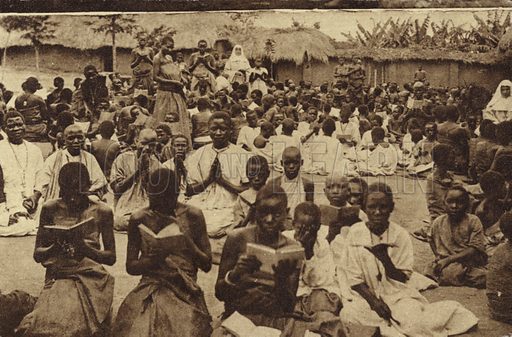
Christianity arrived in South Africa with the arrival of European settlers, primarily Dutch colonists led by Jan van Riebeeck, who established a settlement at the Cape of Good Hope in 1652, bringing with them their Dutch Reformed faith, which became the dominant form of Christianity in the region;.
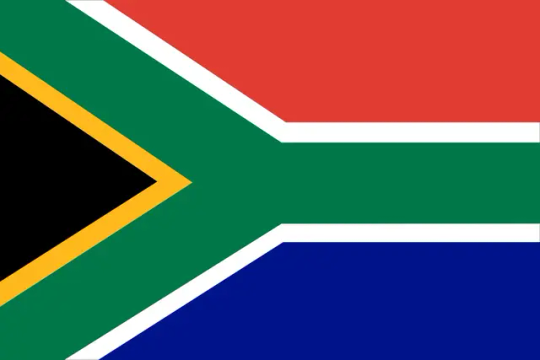
Key points about the introduction of Christianity in South Africa:
Early settlers:Jan van Riebeeck and his Dutch East India Company crew were the first to introduce Christianity to South Africa when they landed in 1652.
Dominant denomination:The Dutch Reformed Church became the primary Christian denomination practiced by the early settlers.
Later influences:Following the Dutch, other European groups like French Huguenots also settled in the region, contributing to the diverse Christian landscape.


#african#kemetic dreams#brownskin#afrakans#africans#african culture#brown skin#afrakan#afrakan spirituality#christianity#jesus#bible#jesus christ#theology#christian#colonization#35mm color photography#color photography#colors#colombia#colored pencil#colorful#colorado#colonialism#colonizer#fuck colonizers#anti colonization#colonial era#colonisation#great britain
29 notes
·
View notes
Text
I think when a lot of queer people who aspire to marriage, and remember (rightly) fighting for the right to marriage, see queer people who don't want marriage, talking about not entering or even reforming or abolishing marriage, there's an assumption I can't fault anyone for having — because it's an assumption borne of trauma — that queers who aren't big on marriage are inadvertently or purposefully going to either foolishly deprive themselves of rights, or dangerously deprive everyone of the rights associated with marriage. But that's markedly untrue. We only want rights to stop being locked behind marriages. We want an end to discrimination against the unmarried.
We want a multitude of rights for polyamorous relationships. We want ways to fully recognize and extend rights to non-romantic and/or non-sexual unions, including but not limited to QPRs, in a setting distinct from the one that (modern) history has spent so long conflating with romance and sex in a way that makes many of us so deeply uncomfortable. And many of us are also disabled queers who are furious about marriage stripping the disabled of all benefits.
We want options to co-parent, and retain legal rights to see children, that extends to more than two people, and by necessity, to non-biological parents (which, by the way, hasn't always automatically followed from same-gender marriage equality even in places where said equality nominally exists. Our struggles are not as different as you think). We would like for (found or biological) family members and siblings to co-habitate as equal members of a household, perhaps even with pooled finances or engaging in aforementioned co-parenting, without anyone trying to fit the dynamic into a "marriage-shaped box" and assume it's incestuous. We want options to leave either marriages, or alternative agreements, that are less onerous than divorce proceedings have historically been.
I can't speak for every person who does not want to marry, but on average, spurning marriage is not a choice we make lightly. We are deeply, deeply aware of the benefits that only marriage can currently provide. And we do not take that information lightly. We demand better.
Now, talking about the benefits of marriage in respective countries' current legal frameworks, so that all people can make choices from an informed place, is all well and good — but is not an appropriate response to someone saying they are uncomfortable with marriage. There are people for whom entering a marriage, with all its associated norms, expectations, and baggage, would feel like a betrayal of one's self and authenticity that would shake them to their core — and every day, I struggle to unpack if I'm one of them or not. If I want to marry for tax benefits, or not. If that's worth the risk of losing disability benefits, in the (very plausible) possibility that I have to apply for them later in life. If that's worth the emotional burden of having to explain over and over, to both well-meaning and deeply conservative family members, that this relationship is not one of romance or sex. (Because, god, trying just to explain aromanticism or asexuality in a world that broadly thinks they're "fake" is emotional labor enough.)
Marriage is a fundamental alteration to who I am, to what rights an ableist government grants me, and to how I am perceived. I don't criticize the institution just because I enjoy a "free spirit" aesthetic or think the wedding industry is annoying, or whatever.
#to claim “gay marriage is assimilationist” is of course bullshit and ahistorical#but to claim “gay marriage is the last marriage reform we need” is even more bullshit. in the vein of “fuck you; i got mine”#amatonormativity#marriage#there's also something idk if i'm that qualified to articulate as a culturally christian person (even if nonreligious)#but concepts of marriage (or lack thereof) vary across the globe and across cultures#yet legal marriage - which crosses borders via presence in immigration law (in addition to obvious colonialism)#can impose extremely eurocentric norms onto countless people#which is a strong argument for separating spiritual/religious marriage from legal benefits tbh#they're *supposedly* separated in the US but you know obergerfell wouldn't have taken until 2015 if that was fully true
90 notes
·
View notes
Text
Spain and Portugal losing electric power… latino core
14 notes
·
View notes
Text
This was a conversation born on Instagram and I thought Tumblr would be an appropriate place to drop it.
_________________________________________
Colonization and the Demonization of Indigenous Beliefs
When the British colonized Nigeria, they didn’t come alone—they brought missionaries. These Christian missionaries didn’t merely preach the gospel. They actively worked to dismantle African spiritual systems, labeling them as "heathen," "pagan," or even "demonic."
To become a Christian wasn’t just a spiritual decision—it was a passport to social acceptance, education, and opportunity under colonial rule. But the cost was high: rejection of one’s own culture and spiritual heritage.
> "Colonialism did not only take our land. It took our gods too."
—Chinweizu, Nigerian philosopher
Over time, Christianity became associated with advancement, literacy, and development. Churches built schools, hospitals, and orphanages—contributions that were tangible and appealing.
Meanwhile, African spirituality was painted with a brush of fear and superstition. Practices like divination, ancestor veneration, or herbal healing were branded as “juju” or “witchcraft,” effectively alienating new generations from understanding their sacred origins.
Internalized Colonialism and Religious Fear
Even after independence, the colonial worldview persisted. Many Nigerians inherited a mindset that Western ways are superior��and this included religion.
Generational Disconnect and Cultural Amnesia
Centuries of demonization led to a deep cultural amnesia. Many Nigerians today have never learned the real meanings behind their people’s spiritual practices. What remains are distorted images—rituals taken out of context, exaggerated stories of curses and spirits, and a widespread fear of being labeled a witch or idol worshiper.
The truth? African spirituality is rich, ethical, and deeply philosophical—rooted in harmony with nature, communal balance, and reverence for the ancestors.
Reclaiming What Was Lost
In recent years, a quiet but powerful revival has begun—especially among young Nigerians and members of the diaspora. Many are reconnecting with systems like:
Ifá and Orisha worship (Yoruba),
Odinani (Igbo),
Bori (Hausa), and more.
This isn’t about rejecting Christianity, but about healing the break that colonization caused between African people and their spiritual identities.
> "To know where you're going, you must understand where you came from—including the gods your ancestors served in love and not in fear."
And to that, I want to add this....
I’m an Atheist. I don’t believe in gods or devils in the literal sense. But I do believe in stories—and the power they hold over people, cultures, and history. So when I hear about how African spiritual systems were labeled “demonic,” I hear—knowing what it truly is—erasure. I hear a calculated strategy to destroy a people’s connection to themselves, their ancestors, their land, and their sense of the sacred.
The only real “devil” in this story is the colonial machine—the empire that cloaked itself in holiness while stealing land, rewriting truth, and trading souls for social status.
Even though I don’t follow any religion, I can see the sacredness in what was taken. And I believe deeply in the work of helping us reconnect with the wisdom, beauty, and balance of our ancestral spiritualities.
Whether or not I believe in gods does not matter, What I truly believe in is us.
#trending#new#explorepage#mr1hand#real life#white supremisist#religion#africa#european colonization#colonialism#colonial history#nigeria#christianity#christian faith#christian living#spiritual rot#spirtiuality#african spirituality
6 notes
·
View notes
Text
youtube
Can a River Be a Person? | Indigenous Traditions: Crash Course Religions #7
What does it mean for a river to be a person? An ancestor, even? In this episode of Crash Course Religions, we’ll learn how Indigenous religious traditions’ emphasis on place, kinship, and diverse spirits challenge the dominant assumptions of the Western worldview.
#religion#indigenous traditions#maori#native american#first nations#vodou#spiritual beings#crash course religions#colonialism#video#divinum-pacis#holy water
15 notes
·
View notes
Text
Somebody sent me a whole entire Charge of the Goddess in my inbox, the one beginning with:
Hear the words of the Great Mother, Who of old was called Artemis, Astarte, Dione, Melusine, Aphrodite, Cerridwen, Diana, Arionrhod, Brigid, and by many other names:
This person ended the message with:
Sounds a lot better to me then blind obedience so... I'll be sticking to my path, thanks.
Hey, hey Anon. Did you know that you're presenting a false dichotomy here? Did you know there are actual options beyond whatever shitty religion of "blind obedience" you're picturing, and this historically and mythologically unsound "all goddesses are actually the Great Mother Goddess" bullshit?
Did you know that claiming that all goddesses are the exact same goddess is spiritual colonialism and spiritual imperialism? Did you know that you're no better than the Roman Empire here, who went around deciding they knew better than other people what their own traditions were really about? Do you know how many POC and Jews are sick and tired of white neopagans justifying cultural appropriation with this rhetoric?
Your path isn't actually "better." It just serves you better. It isn't so hot for everybody whose spiritualities have been colonized and appropriated by people like you.
#anonsense#spiritual colonialism#spiritual imperialism#great goddess#neopaganism#spirituality#religion
64 notes
·
View notes
Text
There is no ONE Spiritualism/Shamanism

A couple of years ago I wrote something longer on this topic on my German blog. But let me talk about this once more.
And I will start with one little disclaimer: How people from the specific religions feel about this largely issue is very different. I have talked with folks who thought it was fine, because people still got the right idea - and other people who hated it. It depends, as so often.
See, especially I would argue in new age-y groups and such, there are more than enough people who if asked about their religion will go: "Oh, I am a spiritualist!" Or something along those lines. For a long time even academic research on a variety of religions was also doing this. Basically just grouping a variety of religions from all over the world together to "Spiritualism" or in some cases "Shamanism". And while main academic research has gotten over this by now, a lot of pop science will still lean on those two terms. And that is a bit of an issue.
But let me explain: There is a variety of religions around the world that share some basic concepts. They usually have some idea of some sort of spirits or gods or something that is comparible to this living in nature. Details will vary. In some of them there is some spirit in every piece of nature (and even spirits in some manmade objects), in some a minor deity who stands for [natural thing] can manifest through all of those natural things. In some of these religions there are more characterized higher gods, in some there are not. As I said, it varies.
The general concept is though that there are some variation of "priests", who can commune with those natural spirits in some way. Again, how these priests act and work is very different. Sometimes there are different classes of priests. Sometimes the role is gender-related. And so on.
And this is the core of the issue. Yes, those religions do absolutely have parallels. But they are not the same religion. They are not even related to each other historically speaking. At least not that we could proof. (After all, this would be strange given those religions are going to be found all around the world.) There are some anthropological theories about this - theorizing that this is a sort of base line for human religiosity - but we do technically not know it. Yes, I do think this is likely, given that human brains do love these ideas of patterns and giving things a character, which also would explain why those religions arise all around the world and often have some similar ideas, but we do not know for certain.
The word "shaman" comes from the Tungusic language saman, which roughly translates to "the one who knows". A word like this is in fact used for this position in several cultures in Siberia and Manchuria. There is some linguistic argument of where it actually originated - but western academia definitely has it from the Tungusic language. And I hope I do not need to explain to anyone why it is at the very least weird to use a word from Siberia to describe religions in Africa, and all over the Americas.
Again, people from those religions have different thoughts on this. I talked to people from some of those religions. Some of them use the word "shaman" themselves - others hate the term and have their own term.
But yeah, the thing I personally hate is, that people act as if all those religions are the same. They are not. They do have some parallels, but also some differences. I mean, acting as if they are basically the same is like acting as if Hindu, Norse and Slavic Mythology being the same. And mind you, those are in fact historically related. But nobody would act as if they were exactly the same.
#anthropology#cultural anthropology#religion#spiritualism#shamanism#history#etymology#shinto#colonialism#anti colonialism
5 notes
·
View notes
Text
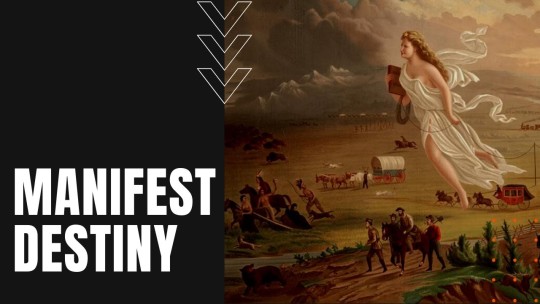
The term 'Sub-Saharan' Africa is a colonial language that was used to belittle African nations south of the Sahara and to separate the other countries from North Africa– Egypt, Morocco, Algeria, Tunisia, Libya, and Sudan due to them being Arab states.
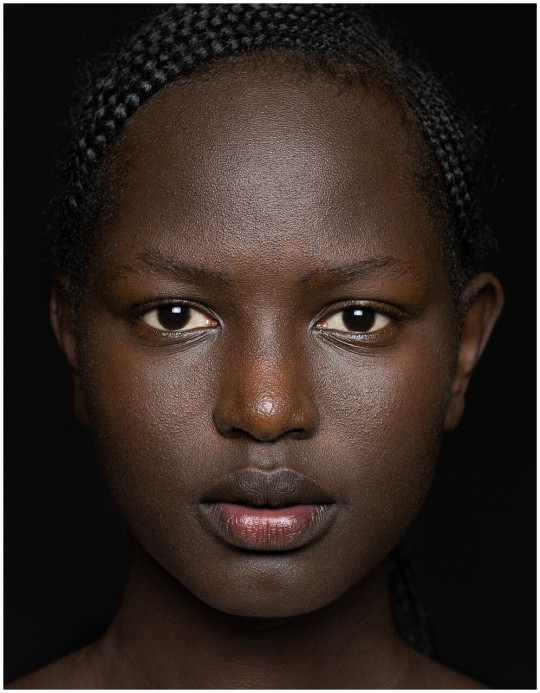
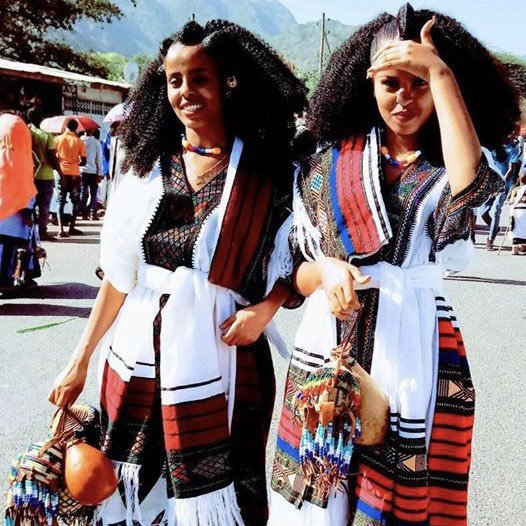

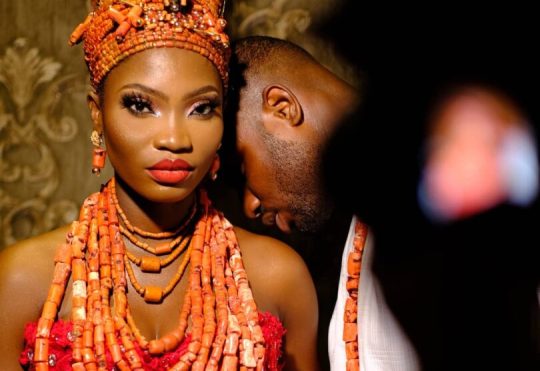
Colored, Negro, Black, Nigger
Every one of these terms come from the mindset of Europeans not Africans. Indigenous African societies do not use the term black as a racial identity outside of influences brought by Western cultures.
Contemporary anthropologists and other scientists, while recognizing the reality of biological variation between different human populations, regard the concept of a unified, distinguishable "Black race" as socially constructed.
Black is a term developed in the Colonial Assembly of Maryland, after a rebellion called Bacon's Rebellion, fought from 1676 to 1677.
The alliance between European indentured servants and Africans (a mix of indentured, enslaved, and Free Negroes) disturbed the colonial upper class. They responded by hardening the racial caste of slavery in an attempt to divide the two races from subsequent united uprisings with the passage of the Virginia Slave Codes of 1705.
White took on the meaning "British, Christian and having rights. Black meaning not having rights.
These divided the two populations, by giving poor Europeans with no power, unprecedented power over all non-Europeans.
The laws were devised to establish a greater level of control over the rising African slave population of Virginia. It also socially segregated white colonists from black enslaved persons, making them disparate groups and hindering their ability to unite. Unity of the commoners was a perceived fear of the Virginia aristocracy, who wished to prevent repeated events such as Bacon's Rebellion, occurring 29 years prior.
By refusing to call you an African, it belittles you, no such thing as black names, black land or black languages. It is like calling a woman big lips or flat butt and refusing to call the woman by her actual name. "Hey colored girl, or black boy".
In social psychology, a stereotype is a generalized belief about a particular category of people.
African populations have the highest levels of genetic variation among all humans.

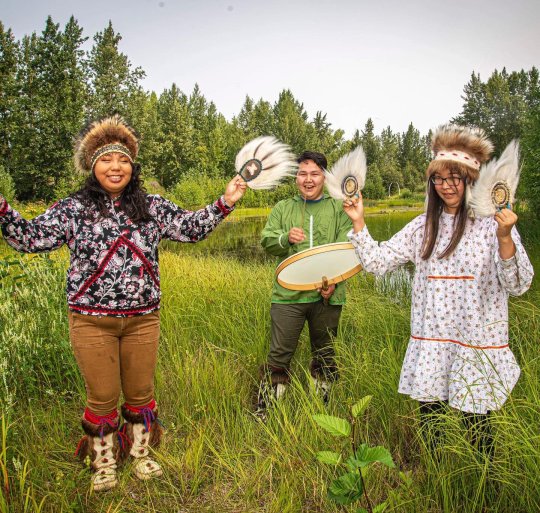
Why You Probably Shouldn't Say 'Eskimo'
People in many parts of the Arctic consider Eskimo a derogatory term because it was widely used by racist, non-native colonizers. Many people also thought it meant eater of raw meat, which connoted barbarism and violence. Although the word's exact etymology is unclear, mid-century anthropologists suggested that the word came from the Latin word excommunicati, meaning the excommunicated ones, because the native people of the Canadian Arctic were not Christian.
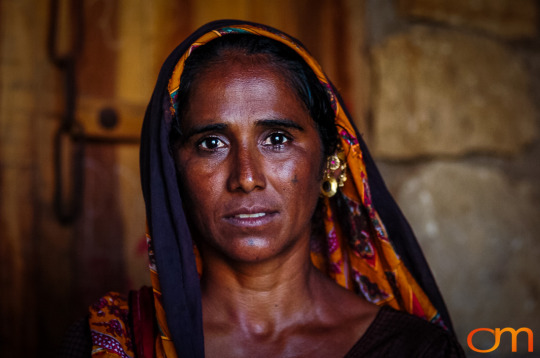
According to the Constitution of India, we are “the people of India that is Bharat”
In English language discourse, the word ‘India’ is used and in Hindi expressions, the word ‘Bharat’ is used. The Anglicised call it ‘India’, and the indigenous call it ‘Bharat’. Our ruling class calls it ‘India’, the others, the janata, call it ‘Bharat’. It has become a trend and fashion to prefer the word ‘India’ over ‘Bharat’. We converse with the country in Hindi and other vernaculars while we govern it in English.

Japanese people usually refer to their country as Nihon or Nippon
The name "Japan" in English is derived from the Portuguese word "Japão," which was used during the 16th century when Portuguese traders and explorers first arrived in Japan. The Portuguese term "Japão" likely evolved from the Malay word "Japang" or "Japang Pulau," which referred to the Japanese archipelago.
The Japanese people themselves refer to their country as "Nihon" (日本) or "Nippon" (日本), and these terms have been used in the Japanese language for centuries.

As European seen themselves as the elites of all races and god's chosen people. They took on the mindset of what I say makes the most sense.
Renaming essentially all populations they came in contact with, using their language as opposed to learning the language of the natives.
And whatever religion or spirituality people had Europeans demonized it and forced converted people to Christianity.
#african#afrakan#kemetic dreams#africans#brownskin#brown skin#afrakans#manifest destiny#colonization#colonialism#europeans#european#slavery#mindset#christianity#religion#spiritual#spirituality#asians#gujarat#gujarati people#india#bharat#nippon#nihon#english#eskimo#yupik#inuit#bacons rebellion
168 notes
·
View notes
Note
you've played iwatex???? who were your favourites :D?
okay full disclosure, ive NEVER seen that acronym before, holy shit, i didn't know that's what we called the game around these parts, that's hilarious
second of all yes i have!! i got the peace ending on my first playthrough and that remains one of my proudest gaming achievements to this very day. my favorites are dys (my romance of choice in said first playthrough), marz, nem, rex, nomi, and sym. utopia is also really hot and i want her on me haha i mean what??
#honestly when things come down to it#i'd say mcm (apf's spiritual successor that i also havent talked about in ages) takes more from teenage exocolonist on a whole#apf's ties are mostly just thematic in nature. and yes that should scare you.#ask#teenage exocolonist is overall a really good game. Highly Recommend It. it has its problems#(the tackling of colonialism is. definitely a narrative decision the designers made)#but it has a lot of heart and a really good vibe beyond that. go play it and also level your perception asap when you do 👍 thank me later
4 notes
·
View notes
Text
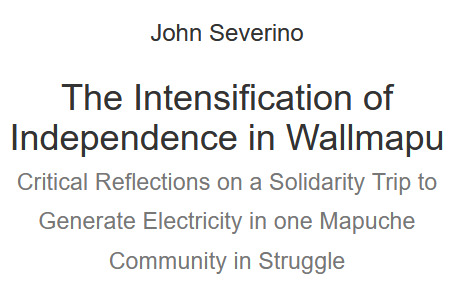
The Anarchists
We got the invitation through a Mapuche friend we had worked with on our previous trip to Wallmapu. Having been their guest, and having collaborated on land recovery, translation and diffusion about their struggle, prisoner support, and other projects, we had a personal basis of trust, solidarity, and friendship. Without that, they never would have thought of contacting us when they learned that a nearby community needed to find a way to generate its own electricity.
The next step was finding comrades who were interested in the project and had the needed skills. We prepared for several months making arrangements, getting resources together, and practicing techniques for the fabrication of different generation systems.
We also talked about our expectations and desires for the trip.
A clear priority for everyone involved was a total rejection of charity. We did not see ourselves as privileged people going to help underprivileged others, nor as allies to the Mapuche struggle. The only reason we considered going was because the Mapuche were struggling for their freedom, and we as anarchists were involved in a distinct but interconnected struggle for our own freedom. This was, in a sense, the “community of freedoms” Fredy Perlman writes about.
The purpose of the project was to deepen the relationship of solidarity between different people in struggle. We were being invited because of specific skills some of us had, but we had no illusions about being unique in that regard. Only because the Mapuche had created such a potent, insightful struggle was this project even possible. It is no coincidence that none of us had ever set up an electricity generation system before; never before had doing so held revolutionary implications. We wanted learning on this trip to go both ways, and we knew that it would. Speaking for myself, the conversations and experiences I had on the previous trip to Wallmapu, the worldview and the vision of struggle I encountered, forever altered my own practice as an anarchist.
Because it was impossible to communicate directly with the people in the community until we arrived, when planning the trip we decided we should begin with a conversation about our goals, motivations, and expectations. We would not get distracted by the technical details, as important as they were. We were not going to set up a generation system in a village, we were going to deepen our relationships. The material infrastructure was an anchor that would permit the intensification of anticapitalist relations, and a point of leverage for the liberated social relations to push back against the imposed capitalist social relations.
As such, success for the project could be defined as the following:
forming relationships that would enable mutual solidarity
working together with peñi and lamuen in a collective process to install one or several models of electricity generation using local materials, with an emphasis on passing on skills, such that the model could be recreated without external aid and set up in other communities in struggle.
In other words, if we effectively set up an electricity generation system in a community and left, and the people there did not know how to make another one on their own, the project would have been a failure for us.
#ally-industrial complex#anti-colonialism#critique of the left#decolonization#gender roles#Indigenous solidarity#interpersonal relationships#Mapuche#memory#privilege#repression#reskilling#Return Fire#sabotage#spirituality#wallmapu#anarchism#anarchy#anarchist society#practical anarchy#practical anarchism#resistance#autonomy#revolution#communism#anti capitalist#anti capitalism#late stage capitalism#daily posts#libraries
4 notes
·
View notes
Text

The Prince Philip Movement is a religious sect followed by a group of the Yaohnanen and Yakel tribespeople on the southern island of Tanna in the Republic of Vanuatu, a Pacific island nation in the South Pacific Ocean. The movement venerates Prince Philip, Duke of Edinburgh (1921–2021), the late consort of Queen Elizabeth II, as a divine figure. This belief system is part of a broader category of cargo cults, which emerged across Melanesia in the 19th and 20th centuries. The Prince Philip Movement is one of the few such cults still in existence and is of significant anthropological and sociological interest due to its unique syncretism of traditional beliefs with modern global figures.

The origins of the Prince Philip Movement lie in the complex colonial history and traditional belief systems of the people of Tanna Island. During the period of European colonization, the islands of Vanuatu—then known as the New Hebrides—were jointly administered by both the French and British through a system known as the Anglo-French Condominium, which lasted from 1906 until Vanuatu’s independence in 1980.
Tanna Island remained relatively isolated compared to other islands in the archipelago, and its inhabitants retained much of their kastom (a Bislama term referring to traditional customs, beliefs, and practices). However, even in Tanna, the presence of colonial administrators, missionaries, and eventually soldiers during World War II exposed the local populations to Westerners and the material wealth they brought—goods that local people associated with divine origin due to their inexplicable abundance. This led to the rise of cargo cults, belief systems that anticipated the return of ancestors or supernatural beings who would bring material wealth (cargo) and restore justice and prosperity.
In this context, the Prince Philip Movement took shape in the mid-to-late 20th century, blending traditional Melanesian mythology with a growing awareness of British royalty due to colonial contact.

The Prince Philip Movement is centered around the belief that Prince Philip is a divine being, specifically a reincarnation or embodiment of a spiritual ancestor who had long been prophesied to return. According to local oral tradition, the legend speaks of a son of a mountain spirit who traveled across the seas to a distant land, married a powerful woman, and would one day return to Tanna. When the villagers observed the respect accorded to Queen Elizabeth II and saw photographs of her husband, Prince Philip, they concluded that he must be the prophesied figure.
The belief is not uniform across all of Tanna but is particularly prevalent in the villages of Yaohnanen, Yakel, and surrounding communities near Mount Tukosmera, a volcano considered sacred in local belief systems. The villagers do not worship Prince Philip in the Western sense but instead revere him as a powerful ancestral spirit. He is believed to be a protector of the people, who will one day return in person or in spirit to bring prosperity, harmony, and justice to the island.
The movement reflects the Tannese worldview in which spirits, ancestors, and natural forces intermingle with human affairs. This syncretism is not unlike other Melanesian cargo cults, yet it is distinctive in its identification of a specific, real-world political figure.

One of the most compelling aspects of the Prince Philip Movement is the actual communication and acknowledgment between the followers and Prince Philip himself. This interaction began in the 1970s when British colonial officials and anthropologists, aware of the belief system, informed Prince Philip of the villagers' reverence. In 1978, he sent a signed official portrait to the villagers, which was received with deep reverence and became a sacred artifact in the village.
In response, the villagers sent him a traditional pig-killing club known as a nal-nal, a significant cultural object. Prince Philip took a photograph holding the club and sent it back to the villagers—a gesture that further solidified their belief and admiration. The photograph, along with the club, remains an object of ritual veneration.
These exchanges were more than symbolic; they represent a rare instance where a Western political figure reciprocated acknowledgment of a cargo cult belief. While Prince Philip never publicly endorsed the beliefs themselves, his willingness to engage diplomatically with the villagers helped maintain and legitimize their spiritual narrative. In 2007, several members of the village even traveled to the United Kingdom and met with Prince Philip in person, further reinforcing their beliefs.

The Prince Philip Movement conducts various rituals and ceremonies that reflect both traditional Tannese practices and their reverence for the Duke of Edinburgh. These include:
Display and Veneration of Sacred Images: Photographs of Prince Philip are displayed in shrines and treated as sacred objects.
Processions and Dance Ceremonies: Villagers engage in ritual dances and symbolic re-enactments of the legend of the mountain spirit, sometimes incorporating elements meant to represent Prince Philip’s journey and marriage.
Celebrations on Royal Birthdays: The Duke's birthday was observed as a day of significance, involving feasting, storytelling, and spiritual rituals.
Rites of Fertility and Abundance: Some ceremonies invoke Prince Philip’s spirit for agricultural fertility and success, linking his divine status with the prosperity of the land.
These rituals also reinforce community cohesion and serve to pass on the belief system to younger generations. Though influenced by external symbols, the rituals are deeply rooted in traditional modes of spiritual expression and oral transmission.

Anthropologists and scholars of religion and post-colonial studies have taken significant interest in the Prince Philip Movement as a living example of cargo cult phenomena and syncretic belief systems. The movement is an illustrative case of how indigenous populations interpret global structures of power through the lens of their own cosmology. It also highlights the capacity of traditional societies to integrate foreign elements into their spiritual and cultural frameworks in ways that affirm their autonomy and identity.
Scholars have pointed out that the movement is not merely a misunderstanding of Western religion or royalty, but rather a deeply rational and adaptive system within its own cultural logic. It offers a critique of colonialism and global inequality by subverting power structures—appropriating the image of a powerful foreign figure and recontextualizing it within a local sacred narrative.

As of the early 21st century, the Prince Philip Movement continues to exist, although the passing of Prince Philip in 2021 marked a significant moment for the sect. Following his death, villagers held mourning ceremonies and spiritual rituals to honor his transition from the physical to the ancestral world. According to some reports, there was a belief that his spirit would now return more powerfully to Tanna, fulfilling ancient prophecies in a spiritual sense.
There has been speculation as to whether the movement would transfer their reverence to another member of the royal family, such as Prince Charles (now King Charles III), though this has not occurred in any systematic or formalized way as of the last known observations.
The movement has also had implications for cultural tourism in Tanna, drawing interest from journalists, documentarians, and tourists. While this has brought some economic benefits, it also poses challenges, particularly regarding the commodification and misrepresentation of local spiritual beliefs.
Despite the global attention, the core adherents of the Prince Philip Movement remain committed to their beliefs, which they consider not merely symbolic but spiritually real. The movement has become a resilient symbol of cultural continuity, spiritual autonomy, and indigenous identity in a globalized world.

The Prince Philip Movement can be seen within the larger context of Melanesian spirituality, which often emphasizes ancestral veneration, animism, and the spiritual significance of nature. Its evolution also reflects the impact of colonial encounters, missionary influence, and economic disruption, which have profoundly reshaped belief systems in the Pacific Islands.
While the movement has often been treated as an oddity or curiosity by outside observers, scholars increasingly emphasize the respectful and context-sensitive understanding of such belief systems. Far from being a relic of ignorance or primitive thinking, the Prince Philip Movement exemplifies the human capacity to adapt, reinterpret, and find meaning in a rapidly changing world.
It also serves as a mirror to the Western world’s own forms of myth-making and idolization, challenging assumptions about the boundaries between religion, politics, and personhood.
#prince philip movement#tanna island#melanesia#vanuatu#cargo cult#anthropology#indigenous beliefs#tribal spirituality#modern myth#religious syncretism#spiritual anthropology#cultural anthropology#ethnography#folk religion#tribal culture#pacific islands#oceanic cultures#post colonial studies#indigenous peoples#anthropological studies#prince philip#royalty worship#tribal beliefs#cultural mysticism#religious movements#unique religions#sacred traditions#ethnographic photography#traditional customs#religious iconography
2 notes
·
View notes
Text
i can always tell i’m entering a new era in my life when i get inexplicably obsessed with a different mountain goats album/ep. it’s like my version of mercury being in retrograde or whatever
#this time it’s moon colony bloodbath and no i cannot tell you what that means for me spiritually#tmg#random ramblings
4 notes
·
View notes
Text
This post I reblogged about whiteness hurting everyone is also relevant to the topic of New Age spirituality. New Age is essentially a new manifestation of whiteness, open to anyone who's willing to give up their authentic traditions and assimilate into this bland, insipid attempt at spirituality.
It's also designed to prey on those of us who are already culturally alienated.
You feel alienated for reasons you can't quite put your finger on? You feel yourself missing a family from long, long ago? Oh sweetie that's because you're a starseed and you miss your star family. Come and join your Soul Tribe in your Family of Light and everything will be all right. :) :) :)
Most of those who are deep into the New Age moment are (at least right now) incapable of understanding that a big reason some people resist New Age is because we're aware that this is just a new manifestation of the thing that caused this pain in the first place. We know that this movement is just going to hurt us and others again. We know that it's going to be weaponized against people - some far more than others. We know that New Age is already at the stage of dehumanizing the resistance, whether they're claiming we're evil reptilians or clones without souls.
Fact is, people don't just resist New Age because they don't have enough love and light in their hearts. Many resist it because they can see it for the monster that it is. We know the patterns of this beast. We remember the pain of its bite in the scars it left us with. We aren't interested in being mauled again.
#assimilation#cultural assimilation#colonialism#cultural colonialism#spiritual colonialism#starseeds#starseed#new age spirituality
81 notes
·
View notes